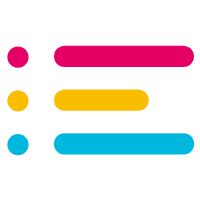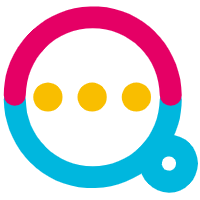![[PlatON Bi-Weekly Report 04.01–04.15]](https://platonworld.org/wp-content/themes/justnews/themer/assets/images/lazy.png)
PlatON is the infrastructure of the privacy computing network and distributed economy. As a high-performance distributed computing network that focuses on scalability and privacy protection, PlatON aims to be the next generation of computing architecture assembled by cryptographic algorithms such as verifiable computing, secure multi-party computation, zero-knowledge proof, and homomorphic encryption, providing public infrastructure software development, consulting, and operation services under an open source architecture for global artificial intelligence (AI) and distributed application developers, data providers, as well as various communities, institutions, and individuals with computing needs. At present, PlatON technology has been applied in multiple fields such as medical treatment, credit investigation, advertising, AI, Internet of Things (IoT), payment and settlement, and key management.
🪐Technological Advances
Up to now, PlatON mainnet has completed two rounds of internal simulation exercises on the following subjects:
- Basic network deployment exercise
- PlatScan deployment exercise
- ATON deployment exercise
- Abnormal disaster tolerance deployment exercise
- Inspection and acceptance of various external documents
- Inspection and acceptance of functions of underlying, ATON, PlatScan, and other parts
The chain, peripheral tools and validators (staking, delegate, unstaking, increasing of staking and various other operations) were covered completely and comprehensively; the third round of internal simulation exercises is currently underway, and various work and parts are coordinated in a steady and orderly manner.
The details of the work are as follows:
1. The mainnet version of the underlying chain is undergoing the third round of simulation exercises to validate various trading scenarios.
2. Peripheral tools:
- The mainnet version of ATON, the mobile wallet, is undergoing the third round of simulation exercises to verify functions such as wallet, PRC 20, PRC 721, delegate, etc.; and the ATON management console mainly validates its automatic configuration updates, user agreement, and privacy policy.
- The mainnet version of PlatScan, the blockchain browser, is in the third round of simulation exercises, mainly verifying its block information, transaction information, validator list, proposal voting, and other functions.
- The mainnet version of Mtool is undergoing the third round of simulation exercises, mainly verifying its staking, transfer, proposal initiation, staking plan creation, release notes, and other functions.
🪐News Report
👉Grigore Rosu officially appointed as PlatON’s Technical Advisor to prompt the development of PlatON’s technology ecosystem
PlatON Network, a distributed privacy AI network, recently announced the appointment of Grigore Rosu, a computer science professor at the University of Illinois at Urbana-Champaign, as PlatON’s technical adviser. Professor Rosu is the founder and CEO of the world’s leading technology company Runtime Verification. Serving as PlatON’s technical advisor, he will focus on the strategic building and sustainable development of PlatON’s global technology ecosystem.
👉Lion King! LatticeX Foundation’s global mascot solicitation has officially opened
LatticeX Foundation, as the supporter and promoter of PlatON, has officially launched its global mascot solicitation! Using the lion as the design inspiration, the LatticeX Foundation is looking for mascot designs from around the world. We invite innovative and creative designers from all over the world to dance with lions and make imaginative works!
👉Cooperation between PlatON and Polkadot Enters a New Phase with Launching of PlatDot Open Beta
Recently, PlatDot, a project jointly promoted by PlatON and ChainX to realize cross-chain interoperability between PlatON and Polkadot, has officially launched its open beta. The cross-chain solution provided by PlatDot can interconnect PlatON, a global distributed privacy AI network, and Polkadot, which has advanced cross-chain technology, thereby the stalemate of isolation and forging complementary interconnection for mutual prosperity.
👉PlatON CTO James Qu was invited to attend Cointelegraph’s 2021 HOT TRENDS Global Summit and delivered a keynote speech
James Qu said at the summit that PlatON is an open source, community-based blockchain ecosystem designed to serve as an infrastructure for privacy-protected computing networks and distributed economies. In other words, PlatON redefines the business model by protecting data privacy, providing the infrastructure to address data-related critical business issues. After years of research and development, PlatON has become a global leader in privacy protection computing, leveraging PlatON’s years of experience in finance, high-tech, artificial intelligence, and other fields to provide the infrastructure supporting large-scale data asset transactions.
🪐Ecological Advances
— On-Chain Privacy Capabilities —
Development Progress
- Validation contract development completed
- Technical documentation completed
- RANDAO contract released on GitHub repository
— Distributed Finance —
Development Progress
- Samurai: The version supporting multi-networks has completed its development and testing, which is expected to be completed on April 16
🪐 Grants
Relevant Progress
1. PlatON and Polka’s cross-chain platform PlatDot
Progress: The first stage of development has been completed and passed the test, and is now officially under global open beta. The first stage has been realized on Alaya, the meta-network of PlatON. In the future, emphasis will be put on privacy protection mechanism, light validators, relay communication bridge, and other technologies and functions to continuously polish the product lineup, optimize user experience and create a new driver for asset value flow.
2. Graphical IDE for Solidity smart contracts with multi-platform support
Progress: Completed overall development, including contract deployment, invocation, etc. The application for final milestone 2 test has been submitted and is recruiting testing staff in the community.
3. PlatEye blockchain browser
Progress: The development of address list, large transaction list, and daily staking information display has been completed. The UI for the validator page is under redesigning, and the design of the new UI, front and back-end coupling, data inspection, and performance testing are expected to be completed during the second half of the month.
4. Lato-NFT supporting threshold signature scheme and NFT auction
Progress: The overall development of the first version has been completed with testing in progress, and the lack of threshold signature functionality needs to be fixed.
5. LAT. Finance’s staking project for maximizing the yield: StakingPool
Progress: Open source of the StakingPool contract has been completed and is in the process of functional acceptance.
https://github.com/LAT-Finance/StakingPool-Contract
6. Java version of PlatON-CLI
Progress: The first phase of the requirements testing is completed and accepted; the second phase has completed 65% and is under self-testing. Inspection and acceptance applications are scheduled to be submitted at the end of the month.
Check the Project repository
https://github.com/aviland/platoncli-java/tree/develop
7. PlatON Ruby SDK
Progress: The overall function has been developed and testing is in progress. Inspection and acceptance applications are scheduled to be submitted at the end of the month.
Project repository:
https://github.com/viaNull/client-sdk-ruby
8. PlatON Go SDK
Progress: The second phase of development has been completed. Functions such as account creation and management, as well as transaction signature and push-to-validator, have been implemented. Besides, test cases and related documents have been completed.
Project repository:
https://github.com/aviland/platoncli-java/tree/develop/
9. QinGahSwap: private DEX with AMM plus order book based on ZK-Rollups
Progress: The second phase of development is about to commence, focusing on the development of test chain contract, adjustable API, network validation program for multi-party validation on Layer 2, and the running version of the interactive interface for debugging of the overall UI.
Completed Projects:
1. Data Token, a data collaboration middleware
Progress: The application layer package for the multi-party data collaboration process has been completed, and the minimum viable product case for traceable computation has been provided, marking the delivery and acceptance of Milestone 4.
2. AlayaScan supports the ARC721 contract display
Progress: Alaya feature development and testing are complete, the PlatScan code is integrated, and testing is scheduled to take place by the end of the month.
— aitos.io —
Milestones
- Technical Requirements for Trusted Blockchain Access of IoT Terminals (Technical Requirements), as the first such standard in the domestic communication industry focusing on the trusted blockchain access of IoT terminals, has successfully passed the review of its exposure draft at the meeting of the WG5 of the Telecommunications Terminal Industry Association (TAF) on March 23, 2021. The Technical Requirements, which is initiated and led by aitos.io and CTTL-Terminal, will soon formulate a draft for review after the approval of the project and its exposure draft.
- On April 9, aitos.io was invited to attend the “Cat.1 empowering industry to embark on a new journey” forum sessions during the 9th China Information Technology Expo. Mr. Gary Xu, CTO of aitos.io, delivered a keynote speech and declared that IoT devices are the source of data, collected and generated by IoT devices in certain scenarios. As this reliable data is uploaded on-blockchain from the device side, it will ensure data is credible at the source of collection. Hence, as the most critical component in an IoT device, the cellular IoT module supporting blockchain services, is key to empowering blockchain potential to the otherwise fragmented IoT devices.
Publisher:PlatONWorld,Please indicate the source for forwarding:https://platonworld.org/?p=2362




